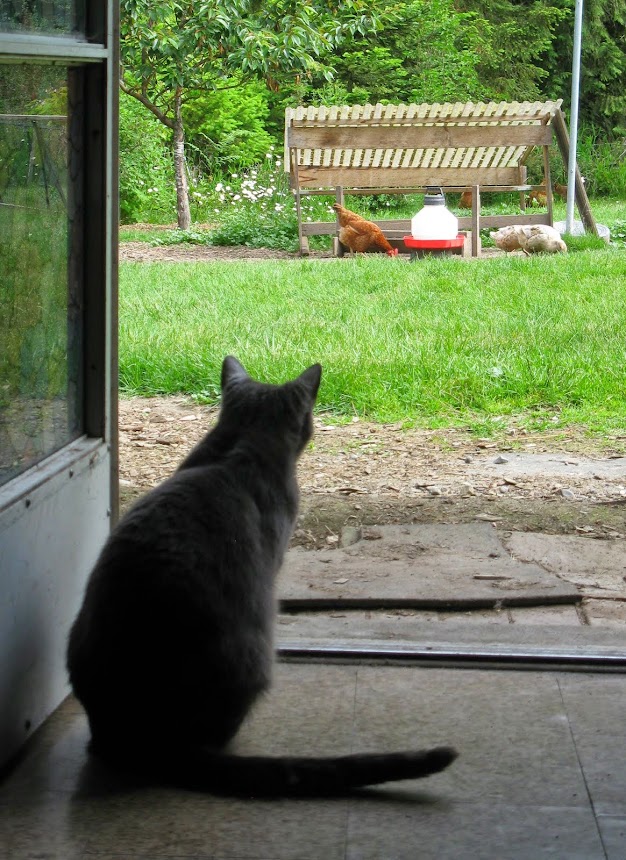One of our Khaki Campbell laying ducks
Okay, so it's now December 15, and we are still collecting between 6 and 10 eggs per day from our laying ducks. What's the big deal about that, you ask? Well, normally at this time of year we expect anywhere from very few to zero eggs.
Laying hens and ducks do, in fact, have an off-season; typically by mid-November, our duck egg production has slowed way down or even stopped, and starts up again round about mid-January. Why the drop in production? Well, hens and ducks go through their annual moult in the fall, and this is always accompanied by a drop in egg production. I suspect it is related to nutrition; the birds' feathers are approximately 85% protein, and they need a boost in their protein intake when they are growing new feathers during the moult. Egg production also requires adequate protein, so it's not surprising that egg-laying is affected.
Also, we're fast approaching the shortest day of the year. Egg production at our farm is highest in the spring, when days are getting longer heading into May and June. Again, nutrition is a factor; in the spring the pasture is growing fast, and the birds are naturally out on the pasture for more hours every day than they are at this time of year. Spring is when mating happens, too, so it works out well that the egg production is so strong. We don't see much mating action this time of year, so it seems to me to be a natural time for the hens and ducks to have a break from laying eggs.
A lot has been said and written about prolonging the laying season for chickens by putting artificial lighting in their coops. The theory is that somehow the birds are tricked into thinking the days are longer than they actually are, so they will keep laying. In this country we're so used to being able to buy eggs year-round that people most often don't get it when I tell them that eggs are a seasonal product. (Granted, the season lasts for 9 or 10 months, but still.) I think the birds not only deserve this annual break, I also believe that it's better for them in the long run to allow this natural rhythm to play out.
So... what's the explanation for the continued egg production this late in the year? I don't think it's the weather; we've already had more days down in the teens than we had last winter. None of our laying birds are in their first year (they don't moult their first year) so I assume they've all been moulting as usual. Since the pasture growth slows down in cold weather, and the birds aren't out there for all that long each day, I can only guess that a higher percentage of their nutrition is coming from the organic grain mash we feed every day, so possibly their protein intake is actually a bit higher than usual, which might account for the eggs.
If it sounds like I'm obsessing on minor details, I promise I'm not actually staying up nights wondering about it. It's just one of many interesting things that occur when you have animals, and I'm the kind of person who likes to understand why and how things happen.
If you have laying ducks, are you still getting eggs? I'd like to hear about your experiences, and if you have any ideas about why the egg "season" has been expended this year, please share them.

